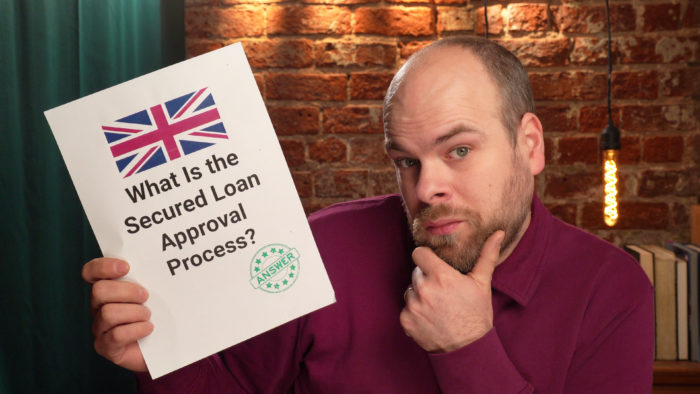Home Equity Loan Interest Rates – Complete Analysis
Representative example: If you borrow £34,000 over 15 years at a rate of 8.26% variable, you will pay 180 instalments of £370.70 per month and a total amount payable of £66,726.00. This includes the net loan, interest of £28,531.00, a broker fee of £3,400 and a lender fee of £795. The overall cost for comparison is 10.8% APRC variable. Typical 10.8% APRC variable

Representative example: If you borrow £34,000 over 15 years at a rate of 8.26% variable, you will pay 180 instalments of £370.70 per month and a total amount payable of £66,726.00. This includes the net loan, interest of £28,531.00, a broker fee of £3,400 and a lender fee of £795. The overall cost for comparison is 10.8% APRC variable. Typical 10.8% APRC variable
Are you keen to learn about home equity loan interest rates? This guide will break down everything you need to know. We’ll explain:
- What a home equity loan is
- How interest rates work for these loans
- What can affect your interest rate
- The benefits and drawbacks of home equity loans
- How home equity loan rates compare to other loans
Deciding to take out a home equity loan is a big step. It can be a bit scary, especially if you don’t know much about them.
But don’t worry, we’re here to help. Every month, over 6,900 people visit our website looking for guidance on secured loans.
Fixed interest rate
One of the aspects of a home equity loan that many people like is its interest rate. Not only are the interest rates on these loans lower than most personal loans, they usually come with fixed monthly interest. With a fixed interest rate, you’ll always know exactly how much your monthly payment will be over the whole loan payment period.
Averages
The average interest rate for a home equity loan at the time of writing and subject to change is between 5% and 6%. If the loan term is shorter, the interest falls at the lower end between these figures – and vice versa.
Lender |
APRC |
Monthly payment |
Total amount repayable |
|---|---|---|---|
| United Trust Bank Ltd | 5.84% |
£218.47 |
£26,216.67 |
| Selina | 6.34% |
£219.34 |
£26,320.83 |
| Equifinance | 6.59% |
£219.77 |
£26,372.92 |
| Pepper Money | 6.86% |
£220.24 |
£26,429.17 |
| Together | 7.4% |
£221.18 |
£26,541.67 |
| Norton | 9.05% |
£224.05 |
£26,885.42 |
| Masthaven | 9.65% |
£225.09 |
£27,010.42 |
| Loan Logics | 11.2% |
£227.78 |
£27,333.33 |
| Evolution | 11.28% |
£227.92 |
£27,350.00 |
Representative example: If you borrow £34,000 over 15 years at a rate of 8.26% variable, you will pay 180 instalments of £370.70 per month and a total amount payable of £66,726.00. This includes the net loan, interest of £28,531.00, a broker fee of £3,400 and a lender fee of £795. The overall cost for comparison is 10.8% APRC variable. Typical 10.8% APRC variable.
Search powered by our partners at LoansWarehouse.
What is the current rate on loans?
The current interest rates on home equity loans will vary between lenders and will also be based on your loan to value ratio, personal finances and credit score. However, based on the current market at the time of writing, you can usually find home equity loans with an interest rate between 2% and 9.9%.
Rates are typically lower if your repayment loan term is shortened. For example, if you want to repay over five years you might be able to get a lower rate than if you wanted to repay over 15 years.
» TAKE ACTION NOW: Compare deals from the UK’s leading lenders
Home equity vs personal loan rates
To put this into context, personal loan APR representative interest rates can vary between 2.9% and 50%+.
Only those with the best credit score are able to access low-interest rates that can compete with a home equity loan. Others will pay substantially more interest with unsecured credit options like these, including credit cards. Moreover, personal loans do not allow you to access huge amounts of credit like a home equity loan would.
That doesn’t mean you shouldn’t consider a personal loan. It may be a better option for you, especially when you consider closing costs (more on this later – don’t miss it!).
What is the rate offered on a line of credit?
Again, it is difficult to determine a current interest rate on a home equity loan or line of credit because the rate offered will depend on multiple factors, and because HELOCs use a variable rate. However, at the time of writing and subject to change, a HELOC interest rate varies between 3% and 9%.
The average interest on a HELOC
Finding data on the average interest you pay on a HELOC is difficult and will change drastically based on loan amounts, repayment terms, variable rate – and for many other reasons. However, some research has found that the average HELOC rate paid over the course of all automatic payments is around 5.7%.
This is still lower than what many people can access through most unsecured loans. Some people with an excellent credit score might be able to get competitive rates to a HELOC or even better.
Home equity loans for all purposes
- Stuck paying high interest on credit card debts & loans?
- Looking to fund a home improvement project?
- Dreaming of finally taking the once-in-a-lifetime trip?

Polly
“This was by far possibly one of the nicest experiences I’ve had getting a secured loan.”
Reviews shown are for Loans Warehouse. Search powered by Loans Warehouse.
HELOC variable rate
Another key difference between a home equity loan and home equity lines of credit is the interest rate. Whereas the former is usually fixed, a home equity line of credit typically has a variable rate. You’ll pay variable interest over the whole repayment period, meaning your monthly payment can go up and down and you’ll never be 100% certain of what you’ll owe.
Is it a good time for a loan?
At the time of writing in the third quarter of 2021, it is a good time to get a home equity loan as interest rates are comparatively low. However, you should not rush to get one of these loans. It takes time to assess your options and find the right lender for you, which may include getting a better deal.
» TAKE ACTION NOW: Compare deals from the UK’s leading lenders
How long do I get to repay a loan?
Lenders will allow you to repay the money over the course of 15 years or longer. You can choose to repay quicker in as short as five years if affordable. Shortening your repayment term could help you access an interest rate discount, but nothing is guaranteed.
Is there an appraisal?
It’s almost certain that a home equity loan will require the lender to complete an appraisal. This is where a professional will look around the property and give it a current market valuation.
Lenders initiate this process because they need to know the current value to verify how much home equity you have and lend responsibly. It also protects the loan applicant because it prevents them from taking out more credit than their home is worth.
You could be charged a fee to complete this process, but some lenders offer to pay this themselves.
Can I get a loan or HELOC with bad credit?
You may still be able to get one of these loans or lines of credit if you have a poor credit rating, but it will be much more difficult and fewer lenders may be open to giving you credit. You might not get the lower rates offered to those with a good credit score. Each application is assessed on its own merits and there is no way of saying what credit scores are accepted and which ones are rejected.

